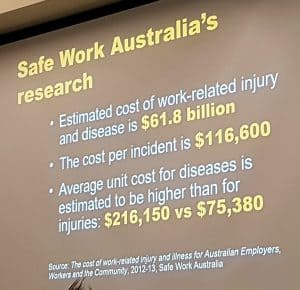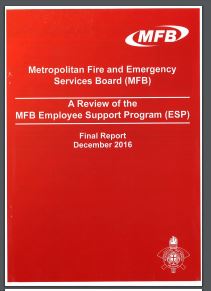 The latest broadcast in Safe Work Australia’s Virtual Safety Seminar (VSS) series is aimed at the executive level of management and entitled “Why big business needs to lead work health and safety“. One of the attractions of the VSS is that Safe Work Australia is able to draw upon senior and prominent business leaders who do not often talk occupational health and safety.
The latest broadcast in Safe Work Australia’s Virtual Safety Seminar (VSS) series is aimed at the executive level of management and entitled “Why big business needs to lead work health and safety“. One of the attractions of the VSS is that Safe Work Australia is able to draw upon senior and prominent business leaders who do not often talk occupational health and safety.
This seminar included contributions from Diane Smith-Gander, Dean Pritchard, Marcus Hooke and was hosted by Jennifer Hewett.
Several important perspectives were discussed that would be helpful to the intended audience but there were also some comments that deserve contemplation.


 The first is
The first is 

